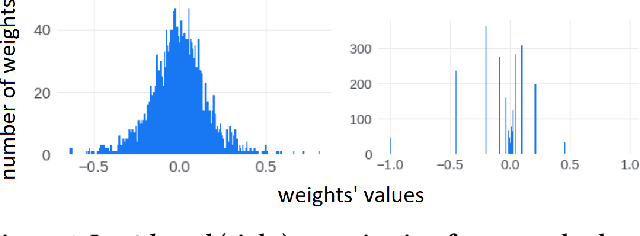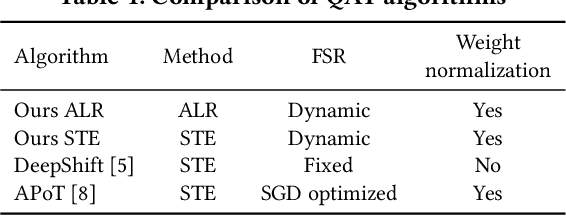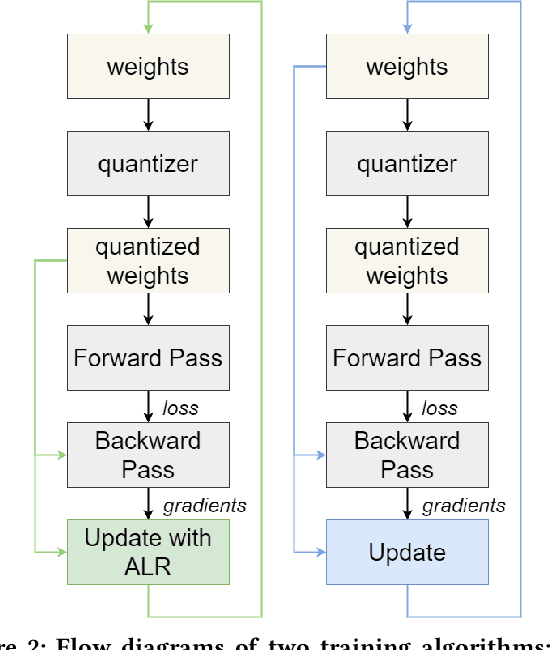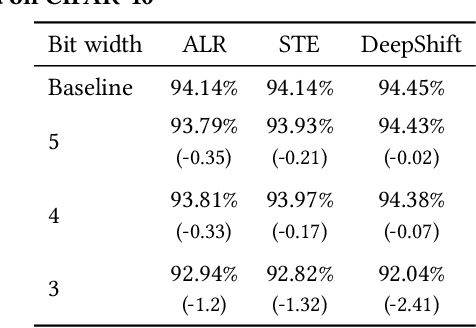H. Ekin Sumbul
Power-of-Two Quantization for Low Bitwidth and Hardware Compliant Neural Networks
Mar 09, 2022



Abstract:Deploying Deep Neural Networks in low-power embedded devices for real time-constrained applications requires optimization of memory and computational complexity of the networks, usually by quantizing the weights. Most of the existing works employ linear quantization which causes considerable degradation in accuracy for weight bit widths lower than 8. Since the distribution of weights is usually non-uniform (with most weights concentrated around zero), other methods, such as logarithmic quantization, are more suitable as they are able to preserve the shape of the weight distribution more precise. Moreover, using base-2 logarithmic representation allows optimizing the multiplication by replacing it with bit shifting. In this paper, we explore non-linear quantization techniques for exploiting lower bit precision and identify favorable hardware implementation options. We developed the Quantization Aware Training (QAT) algorithm that allowed training of low bit width Power-of-Two (PoT) networks and achieved accuracies on par with state-of-the-art floating point models for different tasks. We explored PoT weight encoding techniques and investigated hardware designs of MAC units for three different quantization schemes - uniform, PoT and Additive-PoT (APoT) - to show the increased efficiency when using the proposed approach. Eventually, the experiments showed that for low bit width precision, non-uniform quantization performs better than uniform, and at the same time, PoT quantization vastly reduces the computational complexity of the neural network.
 Add to Chrome
Add to Chrome Add to Firefox
Add to Firefox Add to Edge
Add to Edge